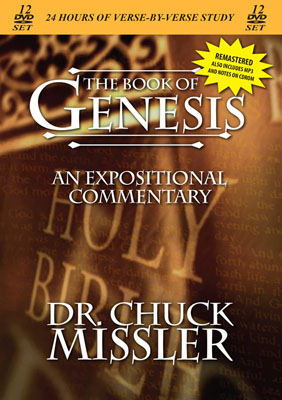A covenant is an agreement or legal contract between two individuals or groups of people. There are generally terms and conditions on both sides, and if one side breaks the contract, the other side is freed from their obligations. The Old Testament contains a number of covenants, but what is particularly interesting is how many of them are unconditional. That is, God has promised that He will perform His side of the contract without requiring any specific terms from the other party. It is akin to the ancient Royal Grant, which requires nothing from the beneficiary.
The Noahic Covenant. God made a covenant with Noah in Genesis 9, promising to never again flood the entire world to destroy all life. It doesn’t assume any future righteousness from the human race. There is no land called Canaan or Palestine or Israel, because those players are not yet born. God simply covenants that He will never again destroy the earth with a flood.
The Abrahamic Covenant. Just a few chapters after Noah, God begins giving blessings that specifically pertain to the people of Israel.
In Genesis 12, He unilaterally offers Abraham several supremely important promises. God says He will:
- Make Abraham a great nation.
- Make Abraham’s name great.
- Bless those who bless him and curse those that curse him.
- Bless all the nations through him.
The Land Covenant. In Genesis 15 and 17, God adds another promise to the list He’s already offered Abraham, giving him the land of Canaan from the Nile River all the way to the Euphrates River. As we follow the squabbling over the West Bank, we need to remember that the land of Abraham’s descendants was to reach halfway into what is modern-day Iraq.
In the same day the LORD made a covenant with Abram, saying, Unto thy seed have I given this land, from the river of Egypt unto the great river, the river Euphrates:
Genesis 15:18
And I will establish my covenant between me and thee and thy seed after thee in their generations for an everlasting covenant, to be a God unto thee, and to thy seed after thee. And I will give unto thee, and to thy seed after thee, the land wherein thou art a stranger, all the land of Canaan, for an everlasting possession;
and I will be their God.
Genesis 17:7-8
Some study Bibles call this the Palestinian Covenant, which is an archaic name since Israel again became a nation. The Romans called the land Palestina after Israel’s enemies the Philistines in order to backhand the Jews, and up until recent times that name stuck. The Jewish newspaper founded in 1932 was called The Palestinian Post, and it was changed to The Jerusalem Post in 1950 after Israel’s War of Independence. Today the word “Palestine” has a different connotation, so I don’t refer to this as the Palestinian Covenant, but rather the Land Covenant of Israel.
God promised to give the land to Abraham’s children as an everlasting possession. That promise was not directed at all of his children – because he had Ishmael, and later on he had several children with Keturah.1 The promise was given to the heirs of Abraham’s son Isaac, the son of promise. In Genesis 15:13-16, God warns Abraham these would be the children who went into bondage for four hundred years (in Egypt). Those specific descendants would be brought back to Canaan after the sins of the Amorites became full. Again, in Genesis 17:19, God tells Abraham that his son Isaac would be the heir of the promise.
Then in Genesis 48:4, Jacob tells us God renewed the promise to him. God would give that land to Jacob’s descendants as an everlasting possession, and He gave that blessing without condition.
Davidic Covenant. In 2 Samuel 7, we find God’s promise to David, which I feel that every Christian should understand. Not only did God promise the land of Canaan to the children of Jacob, but a king would come from the tribe of Judah.2 From Judah, God chose a shepherd boy named David to be king, and God promised that King David would be the progenitor of an everlasting kingdom:
And when thy days be fulfilled, and thou shalt sleep with thy fathers, I will set up thy seed after thee, which shall proceed out of thy bowels, and I will establish his kingdom. He shall build an house for my name, and I will stablish the throne of his kingdom for ever. I will be his father, and he shall be my son. If he commit iniquity, I will chasten him with the rod of men, and with the stripes of the children of men: But my mercy shall not depart away from him, as I took it from Saul, whom I put away before thee. And thine house and thy kingdom shall be established for ever before thee: thy throne shall be established for ever.
2 Samuel 7:12-16
This is an unconditional covenant. There is a corollary: if David’s children disobeyed God, they would be punished. Yet, God would still have mercy on David’s line in the end, and a Son of David would reign on his throne forever. In Luke 1, the archangel Gabriel arrives to tell Mary that God’s promise to David would be fulfilled.
And the angel said unto her, Fear not, Mary: for thou hast found favour with God. And, behold, thou shalt conceive in thy womb, and bring forth a son, and shalt call his name JESUS. He shall be great, and shall be called the Son of the Highest: and the Lord God shall give unto him the throne of his father David: And he shall reign over the house of Jacob for ever; and of his kingdom there shall be no end.
Luke 1:30-33
At church we pray the Lord’s Prayer, and we say “Thy kingdom come. Thy will be done on earth as it is in heaven.” When we pray this, do we even know what we are asking? Most Christians haven’t really thought about it. They just say the prayer as part of tradition. What is this prayer seeking? We are seeking the kingdom of Christ.
“Thy kingdom come.” Around Christmastime, we also often see the famous prophecy from Isaiah:
For unto us a child is born, unto us a son is given: and the government shall be upon his shoulder: and his name shall be called Wonderful, Counsellor, The mighty God, The everlasting Father, The Prince of Peace. Of the increase of his government and peace there shall be no end, upon the throne of David, and upon his kingdom, to order it, and to establish it with judgment and with justice from henceforth even for ever. The zeal of the LORD of hosts will perform this.
Isaiah 9:6-7
“A child is born,” and “a son is given” follow each other. In literature, this is considered a parallel couplet, a repetitive phrase that offers the same concept twice in a row, each with a different nuance of meaning. However, I am convinced that there are no synonyms in Scripture. I do not think these two statements are synonymous. A “child is born” is human, and the event occurred in Bethlehem. The “son is given” is divine, and this event took place at Golgotha.
These phrases convey deep and specific meaning.
In Gabriel’s announcement to Mary, he tells her God shall give her son, “the throne of his father David.” That is an Old Testament phrase found here in Isaiah, and it raises several questions. When did Jesus get it – the throne of David? Did it exist in that day? No, Rome ruled Israel in the first century. Yet, Gabriel told Mary that Jesus would rule on the throne of David and His kingdom would last forever.
Shifting forward, Jesus is about to ascend in Acts 1:6, and His disciples ask Him, “Lord, wilt thou at this time restore again the kingdom to Israel?” He said to them in the next verse, “It is not for you to know the times or the seasons, which the Father hath put in his own power.”
He doesn’t want us to know the timing. We have confirmation that He will come, but we just won’t know when. He does tacitly confirm to His disciples that His destiny is to restore the kingdom of Israel, but it’s not for us to know the times or the seasons.
The New Covenant. All these covenants are connected. This final covenant is the promise that gives the New Testament its name. It is the promise of Israel’s ultimate destiny as the people of God – but not through the Law of Moses:
Behold, the days come, saith the LORD, that I will make a new covenant with the house of Israel, and with the house of Judah: Not according to the covenant that I made with their fathers in the day that I took them by the hand to bring them out of the land of Egypt; which my covenant they brake, although I was an husband unto them, saith the LORD: But this shall be the covenant that I will make with the house of Israel; After those days, saith the LORD, I will put my law in their inward parts, and write it in their hearts; and will be their God, and they shall be my people. And they shall teach no more every man his neighbour, and every man his brother, saying, Know the LORD: for they shall
all know me, from the least of them unto the greatest of them, saith the LORD: for I will forgive their iniquity, and I will remember their sin no more.
Jeremiah 31:31-34
The Enemies of Israel
God gave promises to the children of Abraham, Isaac and Jacob – promises without any conditions required of the recipients. God would accomplish it all. He would even accomplish the hardest part – the changing of their hearts. He would teach them who He is, and He would forget their sins.
Yet, throughout time, there have always been those who oppose the purposes of God according to His promises. Each one of these covenants is challenged by the world. In every age, there have been those opposed to the Abrahamic Covenant. When we encounter anti-Semitism in its many forms, we find that it’s a challenge to the Abrahamic Covenant.
I have spent time at Yad Vashem in Israel, the center for Holocaust research, and I was fascinated to discover the true strength of the German’s anti-Semitism during WWII. They murdered millions of people, but I was amazed that they continued to destroy the Jews even when it was hurting their cause. Berlin was clearly under assault at the end of the war, and the allies were closing in. One would think that the German high command would pull in their best officers and resources to protect their headquarters. Instead, they accelerated the schedule of burning Jews in the ovens, right up to the end. This reveals something very profound: exterminating Jews ranked higher than their own survival.

The priorities make no logical sense. The Germans did not merely seek to dominate and subjugate the Jews. They sought to eradicate them. The Holocaust was a demonic exploit. It’s important to understand that its motivation was demonic, and that anti-Semitism has its roots in Satan’s hatred for God and his efforts to thwart God’s purposes.
The Abrahamic Covenant is challenged by the world today. Who is currently challenging the Land Covenant? Islam. The Islamic countries surrounding Israel have specifically denied Israel’s right to the land. Christian churches around the world are guilty, too, because they are still challenging the Davidic Covenant today. I believe that more churches today deny the Davidic Covenant than affirm it. They allegorize God’s promises to David. They do not expect God to set His Son, the Son of David, on a physical throne to rule from Jerusalem.
Why not? Gabriel reaffirmed the promise to Mary. Gabriel told Mary that her child would sit on the throne of David, which didn’t exist in those Rome-ruled days. Ezekiel describes a temple that doesn’t exist today. Joseph spent years in slavery and prison before God’s promises to him were fulfilled. Temporary situations don’t prevent God from accomplishing His work. The land once ruled by David and Solomon was called “Palestine” for nearly 2000 years, yet the Jewish people are again flocking to the country of their fathers, the land of Israel. It exists as a country once again, and every effort to overrun it has failed. Time and again, the Israelis have fended off their enemies and taken back ground.
The Bible tells us that the Messiah is going to rule with a rod of iron.3 Every knee shall bow.4 Every moment that passes brings us closer to the day Jesus rules from David’s throne, from Jerusalem, on the earth. There are 1,845 verses in the Old Testament and another 318 in the New Testament that reference the return of Christ to rule on Earth. For every prophecy of Christ’s First Coming, I believe there are seven or eight verses about His Second Coming. Jesus Christ literally, physically fulfilled a host of Scriptures in His first visit. We should expect that He will do the same when He returns.
The Fifth Kingdom
When studying Daniel 2, we learn that King Nebuchadnezzar had a dream about a statue made of gold, silver, brass, iron and clay. We know that these materials represent the sequence of world empires from Babylon onward. There were four of them – Babylon, Medo-Persia, Greece, and Rome – and Rome came in two phases, if you will. Most people have studied this and are familiar with these four empires. Yet, Daniel actually deals with five empires in Daniel chapter 2. We can easily overlook the fifth and last empire:
And in the days of these kings shall the God of heaven set up a kingdom, which shall never be destroyed: and the kingdom shall not be left to other people, but it shall break in pieces and consume all these kingdoms, and it shall stand for ever. Forasmuch as thou sawest that the stone was cut out of the mountain without hands, and that it brake in pieces the iron, the brass, the clay, the silver, and the gold; the great God hath made known to the king what shall come to pass hereafter: and the dream is certain, and the interpretation thereof sure.
Daniel 2:44-45
The kingdom of the Messiah will break and consume these kingdoms and will fill the whole earth as described in verse 35. There are two myths I want to puncture: one is Replacement Theology, and the other one is this theory that Israel is a primary source of unrest in the Middle East.
Replacement Theology is a heresy – it’s a non-biblical outgrowth of anti-Semitism in the early church, and we will talk about it more in a little bit. It denies Israel’s place in God’s redemptive program, even though God Himself has spelled it out in both the Old and New Testaments.
The second myth is also anti-Semitic. We are often told that Israel is the source of the trouble in the Middle East. We hear people arguing that if it were not for the existence of Israel, there would be peace in the Middle East. That’s just not true. The Iran-Iraq war had nothing to do with Israel.
It lasted for eight years, and more than one million people were killed. ISIS has been ravaging Syria and Iraq, slaughtering Christians and Muslims alike in a gluttonous rampage that claims to be about the purity of submission to Allah.
There is a 1400-year enmity between Shia and Sunni Muslims that could explode any day. This deep-seated war is the most dominant threat on the near horizon in the minds of many intelligent analysts. Nobody in the Pentagon will really talk openly about it, and nobody in the White House knows what to do about it. As many as eight key Islamic countries are presently heading toward a blood bath over an ancient debate about the rightful successor to the Prophet Muhammad after his death in A.D. 632.
Most people are ignorant about Islam in general and are even more ignorant of the specifics. The threat is there. It’s large, and it is not going away. We need to be aware of the significant changes that are occurring on our horizon. Myopia can be very painful.
Israel is not the source of turmoil in the Middle East. Israel has not been usurped by the Church. The Jews still have a future in God’s plan, but they have been facing an interval, an intermission, until God’s outreach to the Gentiles has been completed. In the meanwhile, they’ve suffered for their blindness.
This article is a short excerpt from Dr. Chuck Missler’s book Israel and the Church: The Prodigal Heirs, available from our online store https://store.khouse.org. Also available as a 2 hour presentation.




